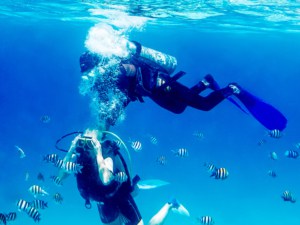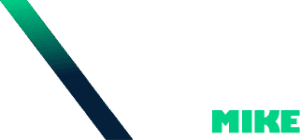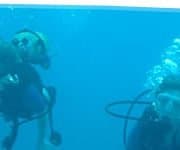Learning to Scuba Dive: Essential Tips for Beginners
If you’re ready to take the plunge and learn how to scuba dive, you’re in for an exciting and rewarding adventure. Scuba diving allows you to explore the incredible underwater world, with its colorful marine life and fascinating ecosystems. Whether you’re planning to embark on a beginner dive tour Maui or explore dive sites in other exotic locations, there are some essential tips that every beginner diver should keep in mind. In this guide, we’ll cover everything you need to know to start your scuba diving journey on the right foot.
Choosing the Right Dive Training Program
Selecting an ideal dive training program is a pivotal step for any novice eager to dive into the scuba diving scene. It’s essential to seek out a dive center recognized and accredited by well-established diving organizations such as PADI (Professional Association of Diving Instructors) or NAUI (National Association of Underwater Instructors). These affiliations are a hallmark of quality, as they adhere to globally acknowledged standards for dive training and safety. Diving into reviews and gathering firsthand accounts from seasoned divers can offer invaluable insights into the credibility and effectiveness of a dive program. This research will arm you with the necessary information to choose a program that aligns with your expectations and learning style. Key considerations should also include the instructor-to-student ratio, ensuring you receive ample attention and guidance. The quality and condition of the diving equipment provided by the center is another critical factor, as well-maintained gear is crucial for both safety and comfort. Additionally, evaluating the dive center’s reputation can give you a sense of the quality of instruction and customer satisfaction. A comprehensive dive training program should offer a blend of classroom-based learning and practical experience. Starting with theoretical lessons helps build a strong foundation of diving knowledge and safety principles. This should be complemented by confined water sessions, where you can apply what you’ve learned in a controlled environment, before progressing to open water dives. Opting for a program that emphasizes practical skills, safety protocols, and environmental conservation will equip you with the knowledge and confidence to embark on your diving adventures responsibly. Engaging with a program that meets these criteria is the first step toward a fulfilling and safe scuba diving journey, setting the stage for countless underwater explorations ahead.
Understanding Scuba Gear Essentials
Before embarking on your scuba diving adventure, it’s crucial to gain a solid understanding of the scuba gear you’ll be relying on beneath the waves. The fundamental pieces of equipment include a diving mask, snorkel, fins, along with a wetsuit or drysuit to regulate your body temperature, regardless of the water conditions you’ll encounter. Additionally, a buoyancy control device (BCD) is essential for managing your underwater positioning, while a regulator, equipped with an alternate air source, ensures that you can breathe comfortably at depth. Other vital components are a depth gauge and a dive computer, which aid in monitoring your dive parameters to keep you safe. Your initial dive training sessions will be an invaluable opportunity to familiarize yourself with this equipment. Instructors emphasize the importance of assembling and disassembling your gear, highlighting the role of each piece in ensuring a safe and enjoyable dive. You’ll also learn crucial maintenance techniques, such as proper rinsing and storage, to extend the life of your equipment. A significant part of your training will involve practical exercises designed to build your confidence in using this gear underwater. You’ll practice skills like clearing water from your mask and regulator, a skill that, while simple in theory, requires calm and controlled execution underwater. Additionally, understanding how to adjust your BCD to fine-tune your buoyancy will greatly enhance your diving experience, allowing you to glide effortlessly over coral reefs or sink gently to the sea floor. Throughout this learning process, your instructor will provide insights and tips on how to best utilize your gear, fostering an environment where you can ask questions and get hands-on experience. This thorough introduction to scuba gear not only prepares you for your first open water dive but also lays the foundation for a lifelong passion for diving. Remember, becoming proficient with your scuba gear is the first step towards unlocking the endless marvels of the underwater world.
Mastering Basic Diving Skills
Mastering fundamental diving skills is a cornerstone of becoming a proficient scuba diver. Key skills that every beginner must learn include equalizing pressure in your ears as you descend, clearing water from your mask without panic, managing your buoyancy to hover or move effortlessly underwater, and signaling to your dive buddy using underwater communication techniques. These skills are not just routine actions but essential practices that ensure your safety and comfort while exploring aquatic realms. During your dive training, each of these skills will be introduced and drilled in a step-by-step manner, often starting in the calm and controlled conditions of a pool or confined water. It’s in these settings that you have the opportunity to practice and perfect these techniques under the watchful eye of your instructor, who will provide immediate feedback and guidance. Emphasizing the practice of these skills in a controlled environment is crucial before venturing into open water, as it builds a foundation of confidence and competence. Equalizing your ears to accommodate the pressure changes as you dive deeper is a skill that needs to be performed frequently and proactively. Techniques to clear your mask allow you to address one of the most common issues divers face without surfacing. Buoyancy control, possibly the most enjoyable skill to master, gives you the freedom to glide over coral reefs or beside underwater creatures with minimal effort. Communication underwater, through hand signals and body language, is vital for the safety and coordination between you and your dive buddy. The path to mastering these skills involves patience, practice, and a mindful approach to each dive. Every diving experience offers a chance to refine your techniques and grow more comfortable with the underwater environment. By focusing on these fundamental skills, you not only enhance your safety and enjoyment but also open the door to more advanced diving opportunities in the future. Remember, the learning never stops in scuba diving, and each dive is a step forward in your ongoing adventure beneath the waves.



